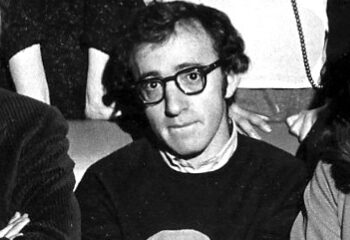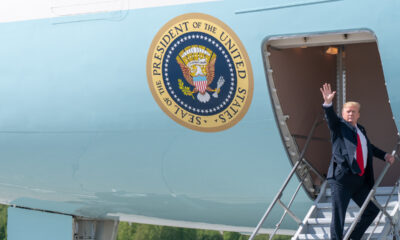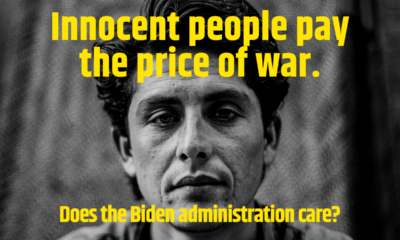Civilization
Shifting Sands of Intelligence: Israel’s Aman and Shin Bet in the Maze of Security, Strategy, and Statecraft
A primer and history of the Israeli intelligence community, with attention to what could have caused them not to predict the Oct. 7 attack.

Intelligence plays a crucial role in mitigating uncertainty, risk, and the likelihood of failure in intricate scenarios, although it does come with certain limitations. The distinct historical backdrop of Israel, particularly shaped by its formation following the 1948 war, has significantly influenced the evolution of its intelligence community. This includes the dynamics and interactions among the different agencies within this community.
In Israel, the military significantly influences national security and defense policies. This approach originated from a strategic decision by David Ben Gurion, the nation’s first Prime Minister. Ben Gurion aimed to separate security matters from party politics to shield them from political interference. Consequently, security decision-making became centralized, primarily involving Ben Gurion, his trusted military advisors, and commanders who shared his political views.
The ‘kitchen cabinet,’ especially Golda Meir’s, illustrates the centralized deliberation of crucial national security issues. Unlike official meetings, these informal sessions did not rely on pre-distributed documents. Instead, high-ranking army officers often used maps to present and discuss military operations. This secretive and casual setting fostered open conversations. It allowed for more direct exchanges, even when its members, like the director of the military intelligence agency Aman, strongly disagreed with certain cabinet ministers who had been invited — a dynamic not at all common in official government meetings.
The tradition of the military leadership’s substantial role in Israeli politics has been a constant. The IDF Chief of Staff and other high-ranking military officers are regular participants in the Security Cabinet meetings and other ministerial committees focused on security matters. Their role extends beyond merely offering expert advice; they actively partake in policy discussions and decision-making. These generals, armed with extensive reports and studies from their departments, often present unified, authoritative perspectives that typically discourage political opposition. This influence is partly due to the fact that Cabinet ministers often lack the resources and expertise to critically evaluate military viewpoints, as civilian agencies are not included in these discussions.
Even after the National Security Council (NSC) was established during Benjamin Netanyahu’s first term as Prime Minister, Aman continued to dominate intelligence. An exception occurred in 2002 when Uzi Dayan took charge of the NSC. During his tenure, he maintained close coordination with the General Staff, headed by Moshe Ya’alon at the time. However, Dayan struggled to effectively mediate between the military and the government, ultimately resigning after his powers were significantly diminished.
The 2008 Israeli National Security Law, enacted in response to the Winograd Commission’s recommendations, restructured the National Security Council into the National Security Staff (NSS). This transformation established the NSS as an independent entity, granting it access to security and foreign affairs information on par with the Prime Minister. The law also authorized the NSS to be involved in the military’s assessment processes and to report its findings directly to the Prime Minister. Despite these changes, the military’s deep-rooted influence in shaping Israel’s national security and defense policies continues to be a fundamental aspect of the country’s governance.
Yehoshafat Harkabi, who became the chief of Aman in the 1950s, aimed to establish Aman as an independent body. He transitioned its structure from a British to a French organizational model, a move intended to enhance its autonomy. Following the Arab-Israeli War, the Israeli army further differentiated between military intelligence and Aman. This separation allowed Aman to specialize in its specific intelligence functions.
When Binyamin Gibli became the chief of Aman, he identified a concerning trend: the longer the time since Israel’s last war, the more military intelligence’s value and prestige diminished. This decline led to poor performance, confusion, and ineffectiveness. Gibli pointed out that the intelligence collected was often no more insightful than what was available in Israeli or international news, exposing a significant shortfall in data collection and analysis. In response, he initiated substantial reforms aimed at diversifying information sources and improving understanding of enemy activities across various fronts. These changes were intended to enable a more precise and situation-specific assessment of threats.
The reform initiated by Gibli led to a notable conflict with Mossad chief Isser Harel, especially regarding Aman’s operational jurisdiction outside Israel’s national boundaries. Traditionally, Mossad had the exclusive mandate for overseas operations. The crux of their disagreement was about defining the respective roles and operational limits of these intelligence agencies. Ultimately, political authorities sided with Gibli, granting Aman the authority to operate abroad. This decision marked a significant shift in Israeli intelligence dynamics, expanding Aman’s scope and capabilities and altering the exclusive overseas operational domain that Mossad had maintained until that point.
Aman is unique for its involvement in non-military investigations, a role not typically associated with military intelligence agencies. Its role has extended to include a broad spectrum of areas including political, economic, social, cultural, and religious aspects. The principal unit responsible for analyzing and interpreting strategic information within Aman is the Research Division, also known as the Information Office. Its unique position, characterized by unparalleled access to intelligence data, extensive resources, and a wide-ranging scope of analysis, establishes it as an unparalleled entity within Israel’s security framework.
In response, the Mossad created a specialized unit focused on military and strategic studies, staffed primarily by a small team, many of whom were former members of Aman’s research department. However, this unit, which reportedly hasn’t grown significantly over the years, faces challenges in accessing the same caliber of “raw intelligence material” as Aman’s Research Department. This limitation significantly hampers its capacity to compete effectively in the intelligence field.
Prompted by the First Intifada and the recognition of intelligence shortcomings, Shin Bet established its own research department in the late 1980s. Staffed with specialists from Aman and the academic sector, this unit concentrates on analyzing Palestinian political dynamics and armed movements. Its main role is to offer strategic insights within these specific areas. This move was made even though Aman was already conducting similar analyses. This situation highlights a competitive dynamic within the Israeli intelligence community.
Intelligence is fundamentally about delivering accurate and reliable assessments, independent of whether they align with the expectations of the authorities. In the spring of 1973, despite observable signs of military build-up, Aman underestimated the likelihood of war, interpreting it merely as a show of force or large-scale maneuvers for political reasons. This perspective persisted even against the advice of the IDF’s Chief of Staff, who cautioned taking Egyptian movements more seriously. A similar issue arose during the 2006 war against Lebanon, where initial intelligence reports from Aman optimistically predicted the outcome of the conflict. However, this forecast soon proved to be inaccurate, sharply contrasting with the challenges encountered by the Israeli army on the ground. This discrepancy led the Chief of Staff to request more detailed information from Aman about Hezbollah’s activities.
Drawing lessons from these past experiences, Aman revised its strategy prior to the 2008 Gaza war. Intelligence officers were embedded within the General Staff’s operational framework, facilitating the sharing of classified information directly with commanders and combat units. This integration aimed to significantly improve the army’s combat effectiveness by ensuring more efficient and informed decision-making on the ground.
The Shin Bet’s operations are heavily dependent on human intelligence, recognizing the crucial importance of this approach in accurately discerning the intentions and strategies of adversaries. The agency’s techniques for infiltrating terrorist groups are notably complex and carry significant risk.
Shin Bet’s intelligence-gathering strategy involves recruiting spies from among dissatisfied elements within enemy groups. The agency’s agents are particularly adept at managing and manipulating human sources, a skill rooted in ancient strategies, such as those outlined by Sun Tzu in Chinese military thought. According to this philosophy, opponents already grappling with internal challenges are more vulnerable to external pressure. Shin Bet’s method focuses on identifying and exploiting these weaknesses, potentially exacerbating the adversary’s existing problems. This tactic aims to divert or diminish resources that the opponent could have used against Israel, thereby reducing their operational capacity.
Shin Bet has effectively penetrated groups like Hamas and Islamic Jihad in the past. One significant example was the 2004 assassination of Sheikh Ahmed Yassin. This operation, which involved an Israeli helicopter striking Yassin with missiles as he left a mosque in Gaza after morning prayers, was a coordinated effort between Shin Bet, the Israeli Air Force, and other intelligence agencies. This action underlines the agency’s capabilities in executing complex operations involving multiple security branches.
During Ariel Sharon’s term as Israel’s Prime Minister from 2001 to 2006, suicide attacks emerged as the deadliest form of terrorist activity. In response to Palestinian violence, Israel intensified its actions, which included military offensives and targeted assassinations. Although these targeted killings succeeded in instilling fear among the leadership of Palestinian organizations, they proved ineffective in completely stopping terrorist activities, especially suicide bombings.
However, the persistent efforts of Shin Bet officers in infiltration and disruption did yield results over time. Following Avi Dichter’s appointment as the head of Shin Bet in 2002, there was a noticeable reduction in suicide terrorism. This decline was largely attributed to targeted intelligence operations designed to preempt such attacks. Additionally, the establishment of designated security zones played a crucial role in disrupting this pattern of terrorism. These zones, strategically positioned, effectively prevented suicide bombers from entering Israel with explosives, significantly lowering the frequency of these attacks.
Over time, while the frequency of suicide attacks in Israel diminished, the ones that did occur led to substantial civilian casualties. In response, Israeli intelligence agencies increasingly depended on Palestinian informants. Palestinian organizations were highly conscious of this threat. This awareness was highlighted by the execution of over fifty Palestinians, including both men and women, accused of collaborating with Israel during the Second Intifada. These groups understood that the intelligence relayed to Israel represented a significant danger to their operations and leadership.
The effectiveness of Israel’s counterterrorism strategies saw a significant shift with the construction of the West Bank barrier. This development was instrumental in the intelligence services’ increased success in preventing attacks by Hamas, an organization that employs the doctrine of martyrdom in its operations. The physical barrier proved to be a critical factor in reducing the threat of these attacks, acting as a tangible obstacle to their execution.
As Amos Harel reported, prior to the 2014 Israel-Gaza conflict, there were disagreements between Aman and Shin Bet regarding the handling of the conflict with Hamas. In July 2014, amidst the Gaza war, Israel accepted an Egypt-mediated ceasefire, but Hamas rejected it. This was followed by an attempted incursion by Hamas near Kibbutz Sufa, which led to an Israeli airstrike and a subsequent ground offensive in Gaza. The primary goal of this ground operation was to dismantle Hamas’ tunnel network along the Israel-Gaza border, which was being used for military purposes. The Israeli forces faced stiff resistance during this operation, resulting in the deaths of over 60 Israeli soldiers. Hamas’ utilization of tunnels for surprise attacks presented significant tactical challenges to the Israeli military.
By early 2013, both Aman and Shin Bet had amassed detailed intelligence regarding Hamas’ tunnel network. This information was pivotal for the Israeli military’s strategic planning. However, despite having this intelligence, significant preemptive measures to address the tunnel threat were not undertaken before the onset of the 2014 war. As a result, during the conflict, Hamas extensively utilized these tunnels, posing a considerable challenge to the Israeli military operations.
The 2014 war highlighted two significant problems. The first was the challenge of transforming intelligence into actionable operational plans. Israel’s Defense Minister Moshe Ya’alon and IDF Chief of Staff Benny Gantz were cognizant of the tunnel threat, yet they lacked a well-rounded strategy for their eradication. Consequently, Israeli ground forces encountered difficulties due to insufficient equipment, training, and specialized strategies for tunnel warfare. The second issue was the ineffective communication between intelligence agencies and political leadership. While Prime Minister Benjamin Netanyahu and Defense Minister Ya’alon were kept informed about the tunnels, other cabinet members, particularly those outside the ‘kitchen cabinet,’ were not adequately briefed. This led to a lack of awareness within the broader Israeli cabinet regarding the scale and intricacy of the tunnel network, resulting in surprise and unpreparedness when the extent of the issue became apparent during the war.
In response to the tunnel threat and rocket attacks from Gaza, Israel ramped up its efforts to locate tunnel entrances. Shin Bet interpreted these rocket attacks as part of Hamas’ strategy to escalate the conflict, potentially including an attack near Kibbutz Kerem Shalom. Meanwhile, Aman’s assessment suggested that Hamas might have been planning an operation near Kibbutz Sharem. This was seen not as part of a broader war strategy, but rather as a reaction to the specific circumstances Israel was facing. Defense Minister Moshe Ya’alon concurred with this view, proposing that Hamas had accelerated its plans because Israel was close to discovering the tunnel. This assessment eventually led to an Israeli airstrike.
Discussions within the Israeli intelligence community also focused on Mohamed Deif, the commander of the Al-Qassam Brigades. Shin Bet viewed Deif, correctly, as a central figure in Hamas’ leadership structure, emphasizing his importance. In contrast, Aman considered the tunnel project to be a more evolutionary development within Hamas, thereby downplaying Deif’s individual role and suggesting that Hamas’ leaders were not actively seeking a major conflict.
As we have seen, since its founding in 1948, Israel has consistently involved its military leaders in diplomatic and negotiation efforts. General Moshe Dayan emerged as a significant figure in the diplomatic landscape, especially following the 1956 Suez Crisis. He played a vital role in negotiating the withdrawal agreement from Sinai and was instrumental in the 1974 disengagement talks with Egypt after the Yom Kippur War. Other Israeli military figures, like General Aharon Yariv and Colonel Dov Sion, have also been actively involved in discussions with counterparts from Egypt and Syria. Furthermore, the Israeli Defense Forces’ Planning Branch, known for its strategic insight, laid crucial groundwork that facilitated the success of the 1978 Camp David Accords. These accords resulted in a landmark peace treaty between Israel and Egypt.
Prime Minister Isaac Rabin’s approach to peace negotiations with the Palestinians heavily incorporated military expertise. Notably, he utilized the strategic acumen of General Amnon Lipkin-Shahak in crafting negotiation tactics with Palestinian leader Nabil Shaath. During Ehud Barak’s tenure as Prime Minister, at the 2000 Camp David Summit, the Israeli delegation, led by Barak, put forward extensive security arrangements. These proposals included establishing radar stations on Palestinian territory, controlling airspace usage, and reserving the right to deploy troops during emergencies. These security-focused proposals reflected the strong military influence on Israel’s diplomatic efforts. However, the negotiations at Camp David, marked by a rigid all-or-nothing stance, failed to address critical issues. This failure contributed to the summit’s breakdown and played a role in triggering the Second Intifada. The outcome of the summit highlights the complex challenges of balancing military perspectives with diplomatic imperatives in the quest for peace.
The subsequent Taba negotiations in January 2001, while bringing the parties closer to agreement, were also marred by unresolved issues and were eventually suspended as Barak faced electoral challenges. This period exemplifies the complex and sometimes contentious relationship between military imperatives and diplomatic efforts in Israeli politics, where the military plays a crucial role in shaping the outcomes of war and peace.
The ongoing absence of a comprehensive agreement with the Palestinian National Authority means that the Palestinian issue will remain unresolved. This failure to establish terms for peaceful coexistence between Israelis and Palestinians, each within their own state, perpetuates tension. Consequently, this unresolved situation maintains the risk of future disturbances and conflicts well past the tragic terrorist attacks of October 7th, 2023.
This article was originally published by RealClearDefense and made available via RealClearWire.
Carlo J.V. Caro has an advanced degree in Islamic Studies from Columbia University and is a political and military analyst. He has published numerous articles in the U.S. and Israel on foreign affairs and security.
-

 Education2 days ago
Education2 days agoCHAPTER 13: Fomenting Race Wars Begins in Kindergarten
Space Is No Longer the Final Frontier—Reality Is [forthcoming release May 2024] -

 Civilization3 days ago
Civilization3 days agoAntisemitism – and misguided legislation
-

 Civilization4 days ago
Civilization4 days agoUkraine as proxy for war with Russia
-

 Executive2 days ago
Executive2 days agoCensorship Industrial Complex redux
-

 Education4 days ago
Education4 days agoFive Ways Campus Turmoil Hurts Democrats and America
-

 Civilization4 days ago
Civilization4 days agoGatsby Loses to Woody Allen
-

 Guest Columns14 hours ago
Guest Columns14 hours agoWhen Artificial Intelligence Tells You What A “Useful Idiot” In The Mainstream Media Cannot — The Truth
-

 Guest Columns4 days ago
Guest Columns4 days agoIs Trump Nostalgia Enough?









